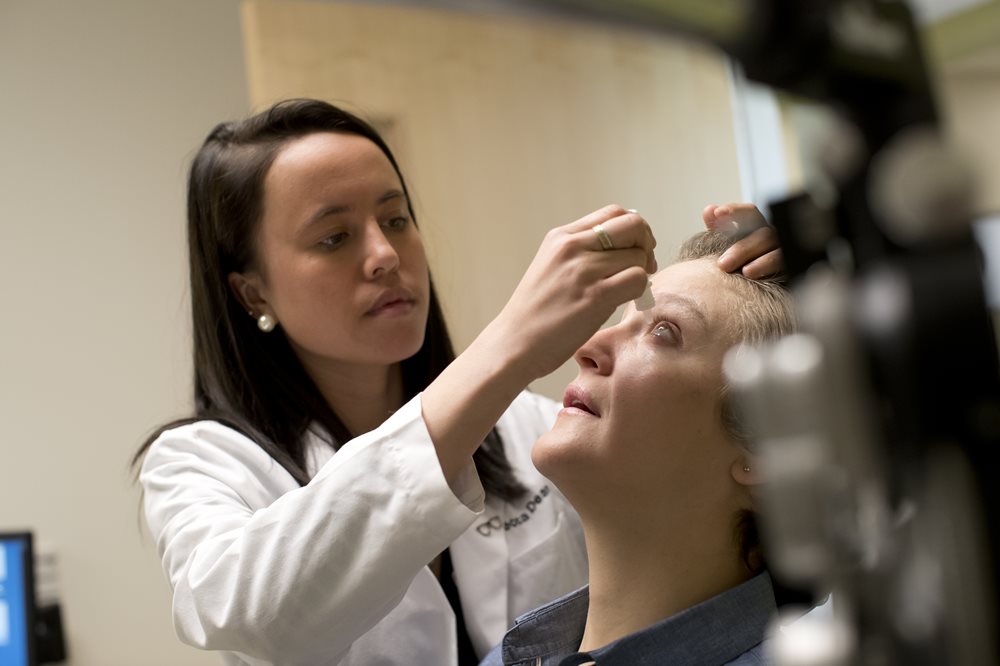Dry Eye Awareness Month: Facts about Dry Eye Syndrome
Dry eye is a common condition that occurs when your tears aren't able to provide adequate lubrication for your eyes. Dry eyes may occur if you don't produce enough tears or if you produce poor-quality tears. You may experience dry eyes in certain situations such as on an airplane, in an air-conditioned room, while riding a bike or after looking at a computer screen for a few hours.

Symptoms of dry eye may include:
- Scratchy or itchy eyes
- Redness or irritation of the eyes
- Blurry vision
- Burning sensation of the eyes
- Feeling of having something in the eyes
- Constant tearing of the eyes
- Excessive blinking
- Difficulty wearing contact lenses
Factors that can contribute to dry eye include the following:
- Aging
- Certain medical conditions including diabetes, rheumatoid arthritis, lupus, scleroderma, Sjogren's syndrome, thyroid disorders and vitamin A deficiency
- Certain medications, including antihistamines, decongestants, hormone replacement therapy, antidepressants, and drugs for high blood pressure, acne, birth control and Parkinson's disease
- Women are more likely to develop dry eye; hormonal changes during pregnancy and after menopause have been linked with dry eye
- Windy, smoky, or dry environments
- Seasonal allergies
- Blinking less often, which tends to occur while reading, driving or working at a computer
- Laser eye surgery may cause temporary dry eye symptoms
 Treatments for dry eyes may make you more comfortable. For most people with occasional or mild dry eye symptoms, it's enough to regularly use over-the-counter eye drops (artificial tears). If your symptoms are persistent and more serious, you have other options. What you do depends on what's causing your dry eyes.
Treatments for dry eyes may make you more comfortable. For most people with occasional or mild dry eye symptoms, it's enough to regularly use over-the-counter eye drops (artificial tears). If your symptoms are persistent and more serious, you have other options. What you do depends on what's causing your dry eyes.
The Eye Institute’s Dry Eye Clinic focuses on the diagnosis and management of dry eye syndrome. Doctors provide comprehensive dry eye evaluations, using the latest technology, and recommend thorough, customized therapy plans for each patient.
If you are experiencing symptoms of dry eye, contact the dry eye experts at The Eye Institute. For an appointment, call: 215.276.6111.